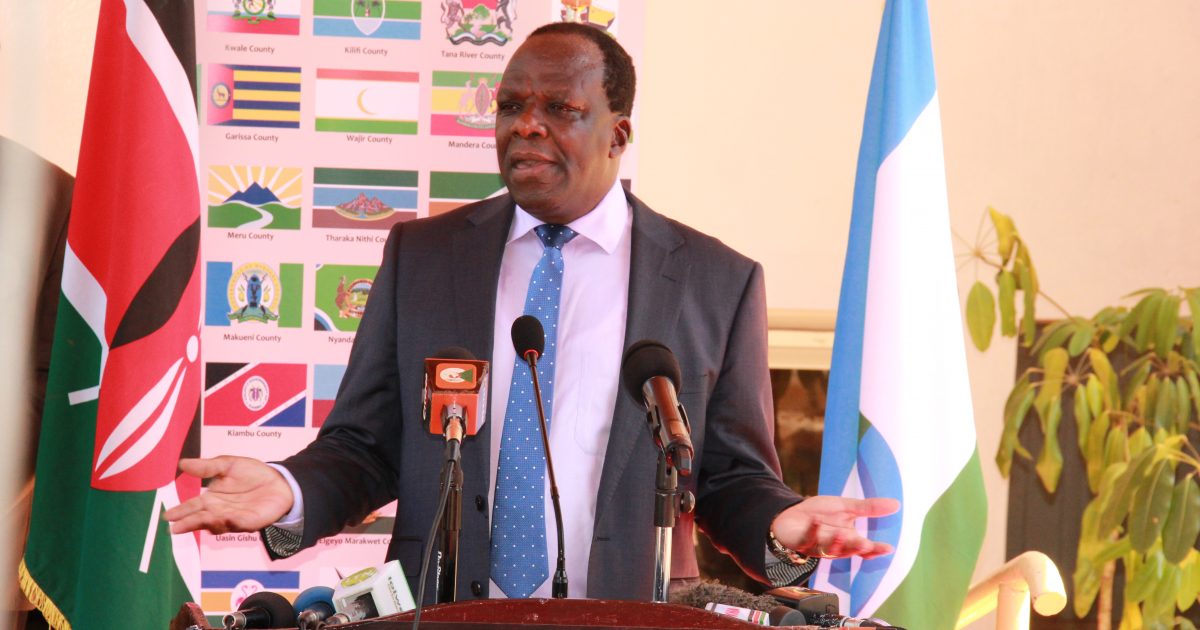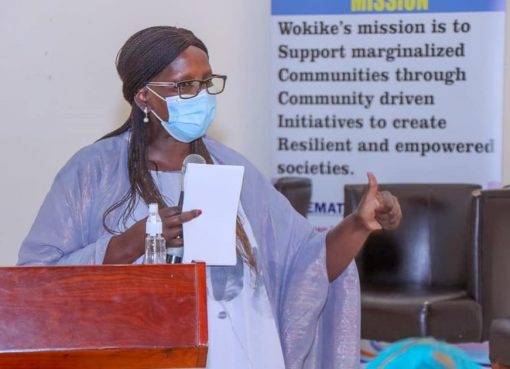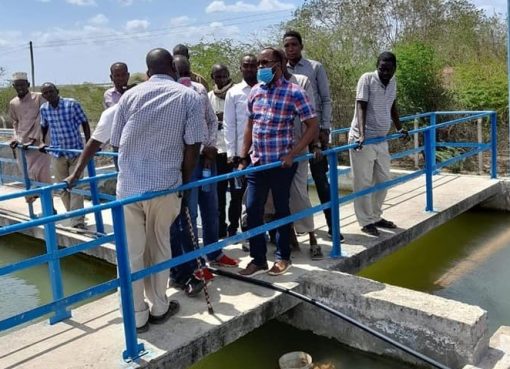The 47 county governments have stepped up measures to cushion the poor and vulnerable groups against the harsh economic effects of Covid-19.
Council of Governors Chairman Wycliffe Oparanya said County Governments have mapped 1.9 million households that require urgent food support due to livelihood challenges related to COVID 19.
Out of the 1.9m households, he disclosed counties have prioritised 742, 038 homes for food aid through cash transfer, e-voucher and in kind food distribution.
Nine County Governments, he said have so far mobilised Sh1.087 billion to support the initiative adding that the national government has taken over an additional 250,000 households in ten counties.
Speaking in Kisumu on Wednesday during his weekly address to the media, Oparanya urged the national government to bring on board more households to cover the 47 counties.
Oparanya who is also the Kakamega Governor lamented over the slow disbursement of funds from the national treasury which he said has greatly hampered the efforts of the devolved units to fight the covid-19 pandemic.
The National Treasury, he said was yet to disburse the Sh 5 billion to the County Governments that the President announced as support towards the fight against the COVID-19 pandemic.
He added that an additional Sh 353 million donated by the Danish Embassy towards this fight in levels two and three health facilities was also yet to be disbursed.
“As the pandemic spreads rapidly to the Counties, Kenyans should be aware that there is adequate funding but we should not be held accountable for failure to act because the resources are being withheld by the National Treasury,” he said.
County governments, he said were not able to carry out Covid-19 tests since they lacked the capacity with health officials forced to travel for long distances to deliver samples to designated centres across the country.
The County government workers, he added have been locked out of the National Hospital Insurance Fund (NHIF) thus will have to pay out of pocket for any expenses that arise from contracting any disease including COVID-19.
“We call upon NHIF to expedite this process and sign agreements with the County Governments to ensure that civil servants, including the medical personnel are insured,” he said.
Water companies run by the county governments, he said were struggling to meet their operational costs.
As a result, they have accumulated huge electricity bills, failing to pay salaries and procure water treatment chemicals.
“While the National COVID-19 response committee gave the directive for free supply of water to informal settlements, the committee did not provide for funding for the revenue gap,” he said.
He asked the Food Supply and County Government Coordination Committee headed by Agriculture Cabinet Secretary (CS) Peter Munya to prioritise funding the water supply as they also focus on health and food security aspects.
To mitigate the adverse effects of floods, Oparanya disclosed that the counties were working with farmers whose crops were washed away to help them reclaim their land and replant.
Oparanya took issue with Non-Governmental Organisations (NGOs) which have received support from donor partners but were not actively involved in the war against Covid-19.
“We are aware that there are in excess of 11, 262 NGOs in the country who have received huge support by their donors towards fighting this pandemic. However this support has not been seen or felt by County Governments. We encourage these organisations to partner with the Counties so that the support they are offering can reach the most deserving,” he said.
By Chris Mahandara




